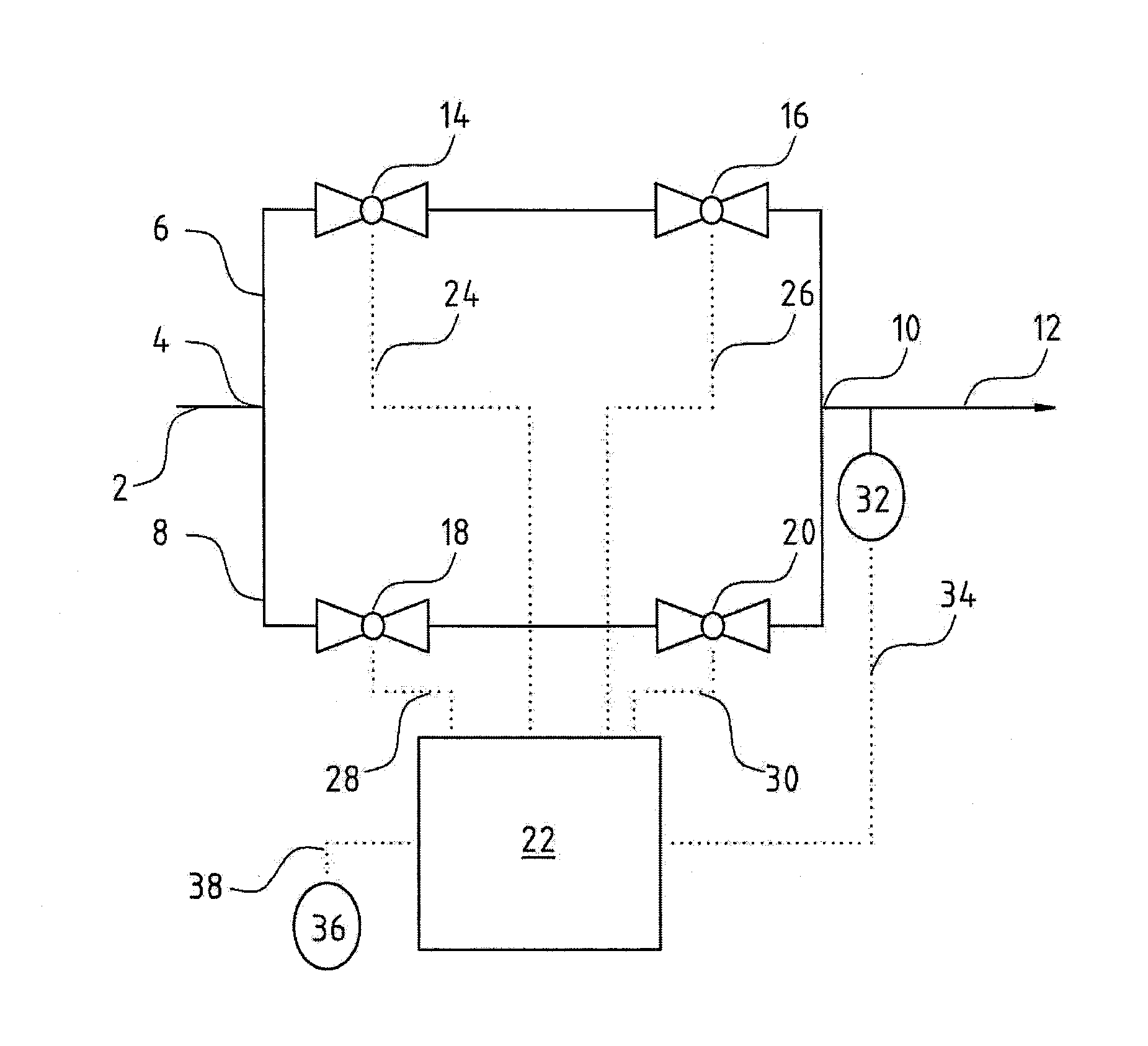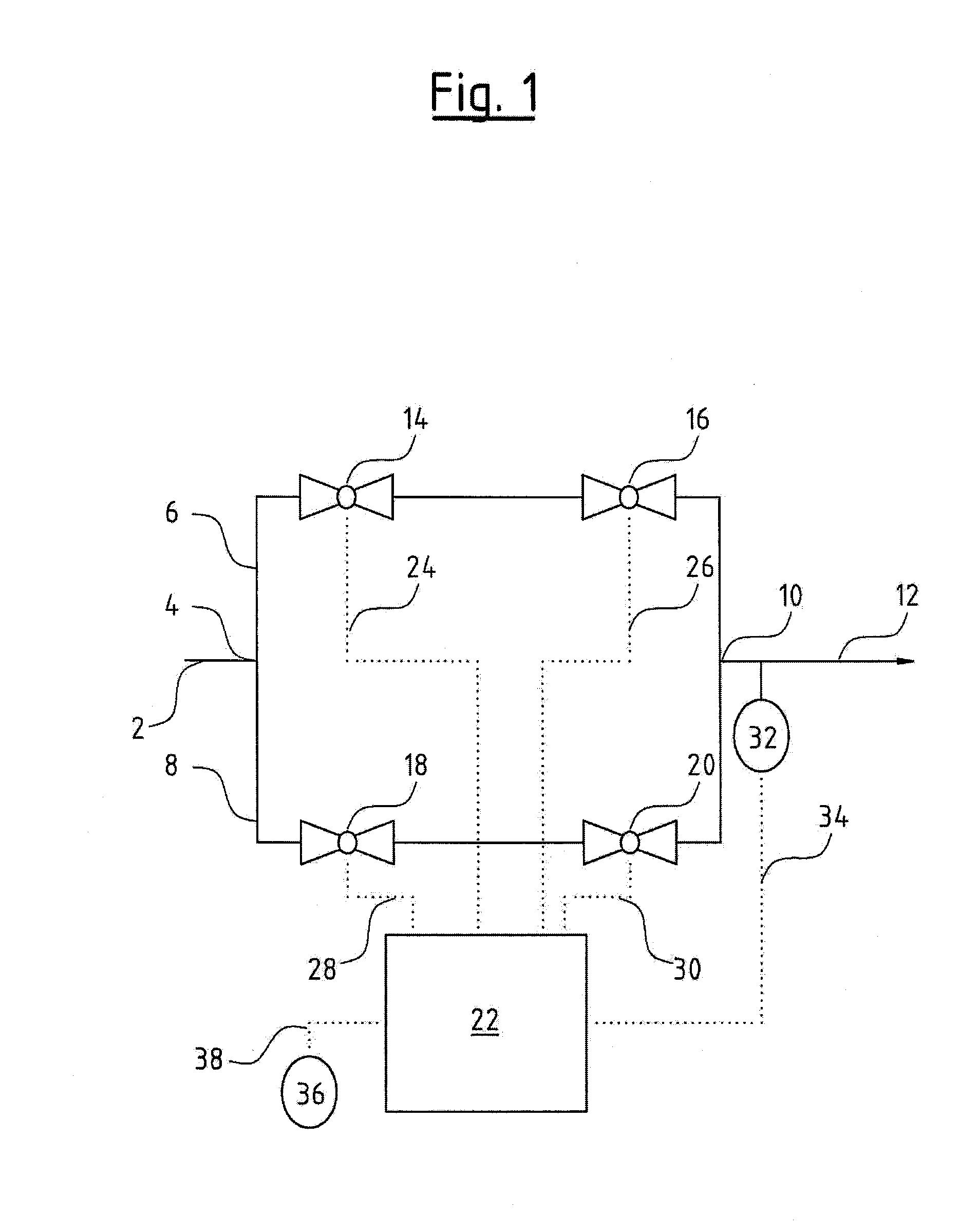Pressure regulation device, in particular for an oxygen emergency supply system in an aircraft
a technology of pressure regulation device and oxygen emergency supply system, which is applied in the direction of fluid pressure control, flying suits, instruments, etc., can solve the problems of no longer being able to close the valve, and achieve the effects of simple and inexpensive design, simple testing of the operability, and good reliability
- Summary
- Abstract
- Description
- Claims
- Application Information
AI Technical Summary
Benefits of technology
Problems solved by technology
Method used
Image
Examples
Embodiment Construction
[0021] The pressure regulation device for the embodiment shown in FIG. 1 is arranged in the oxygen emergency supply system of an aircraft, which is otherwise not shown, in a medium pressure region in the conduit connection between an oxygen storage tank and the oxygen masks of passengers and crew. The pressure regulation device in this embodiment is envisaged for relieving the oxygen pressure of about 10 bar prevailing in this medium pressure region to the required mask pressure.
[0022] The oxygen is supplied to the pressure regulation device via an entry conduit 2 arranged on the entry side. A conduit branching 4, from which two conduits 6 and 8 branch, connects to this entry conduit 2. Proceeding from the conduit branching 4, the conduits 6 and 8 are led parallel to one another, until they reunite again into a common exit conduit 12 at a conduit junction 10.
[0023] Two electrically actuatable valves 14 and 16 are arranged one after the other in the conduit 6. Two electrically actu...
PUM
 Login to View More
Login to View More Abstract
Description
Claims
Application Information
 Login to View More
Login to View More - R&D
- Intellectual Property
- Life Sciences
- Materials
- Tech Scout
- Unparalleled Data Quality
- Higher Quality Content
- 60% Fewer Hallucinations
Browse by: Latest US Patents, China's latest patents, Technical Efficacy Thesaurus, Application Domain, Technology Topic, Popular Technical Reports.
© 2025 PatSnap. All rights reserved.Legal|Privacy policy|Modern Slavery Act Transparency Statement|Sitemap|About US| Contact US: help@patsnap.com


